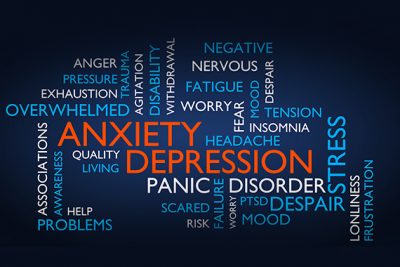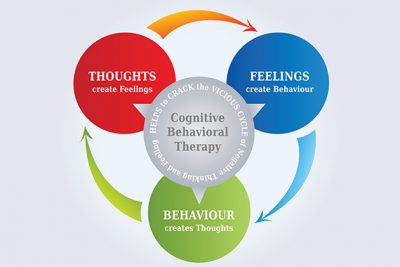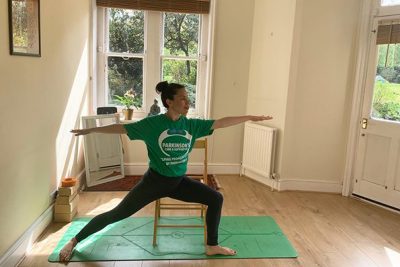Insomnia
Insomnia is the name given to the condition where you are regularly unable to fall asleep or remain asleep for a long enough period of time. As a result, insomnia can have a negative impact on your mood, energy levels, concentration, relationships, ability to stay awake throughout the day, and ability to complete simple daily tasks.
Causes of Insomnia
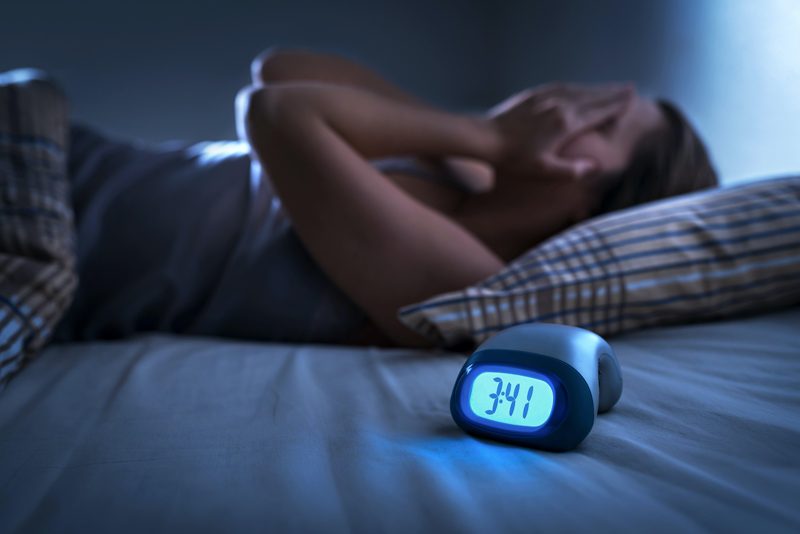
Parkinson’s Disease
It’s estimated that around three-quarters of people living with Parkinson’s disease also suffer from a sleep disorder.
Sleep problems may be an early sign of Parkinson’s disease, even before motor symptoms have begun. Some of the common sleep problems for Parkinson’s patients include: Insomnia, Excessive Daytime Sleepiness, Sleep Apnea, Restless Leg Syndrome, REM sleep behaviour disorder and Nightmares.
As Parkinson’s disease progresses and symptoms get worse, sleep problems may become more serious. For example, pain and uncontrollable movements may cause severe insomnia.
Daytime sleepiness may also increase as Parkinson’s disease progresses. Using stimulant or alerting medications during the day may prevent sleep attacks and help patients avoid excessive napping, which may contribute to insomnia. Behavioural techniques should be used for sleep and sleepiness problems in Parkinson’s patients.

Medication
Insomnia may also be caused by certain Parkinson’s medications. For example, MAO-B inhibitors which prolong the action of dopamine in the brain, can cause insomnia. MAO-B inhibitors include Selegiline (Eldepryl tablets and Zelapar -tablets that dissolve on the tongue), Rasagiline (Azilect tablets) and Safinamide (Xadago tablets).
The time in which you take Parkinson’s medications can also affect sleep. For example, taking medication earlier in the day may improve sleep. Also keep in mind that any change in medication – including the addition of sleep aids or the timing of administration – should be done in consultation with your GP. Over the counter sleep aids (the ones you can buy without a prescription) usually contain diphenhydramine, an anti-histamine, which blocks absorption of dopamine.
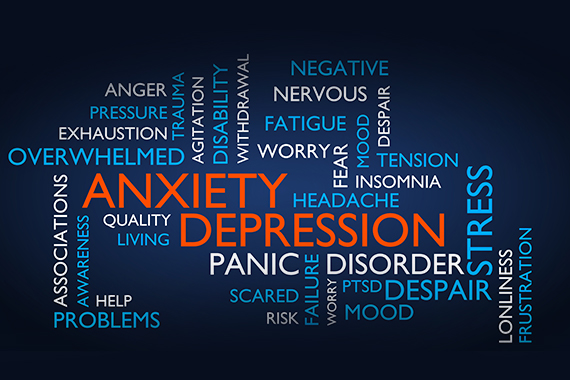
Mental Health
Stress plays a keys role in sleep and can severely inhibit good quality sleep. It is important to keep stress at bay. A sleep deficit can make you feel mentally slower and more emotional, which can exacerbate your experience of stress. Dealing with lasting insomnia can cause stress, too, which can lead to more stress-related insomnia. If your insomnia is stress-related to begin with, being overly tired and stressed does nothing to help solve the problems creating the stress in the first place.
Try to address the stresses in your life. Write them down or keep a journal. Finding solutions to these problems will reduce your stress levels.
Stress can also cause body tension. For people with Parkinson’s this can worsen tremors, stiffness and rigidity and cause bodily pain. This bodily tension can disrupt sleep quality. Warm baths with Epsom salts, massage with magnesium oils or lavender can help to relax body tension.
Mental health problems like anxiety and depression can also affect our sleep. In these cases, a combined approach to tackle both the mental health issue and the poor sleep is often the most effective method of treatment.
Talk therapy is recommended by Parkinson’s Care and Support UK as the best therapy for anxiety, depression and insomnia.

Environment and Lifestyle
The bedroom should be somewhere that we associate with sleep. Your bed should be used for sleep or sex only. Where possible, you should try to remove distractions from your bedroom. It is better to watch TV, use the computer and eat in another room. This will allow you to relax with no distractions in your bedroom.
Be mindful of the presence of gadgets and electronics, such as computers, phones, tablets and TVs. The backlit ‘blue light’ displays suppress melatonin production – the hormone that helps you sleep; the suppression of melatonin causes sleep disruption. You should stop using these devices two hours before you go to sleep to reduce their impact on your sleeping.
Eat clean and avoid high saturated fats, sugary foods and caffeine. Eating heavy foods, especially before bed can disrupt sleep as can nicotine.
How to treat Insomnia
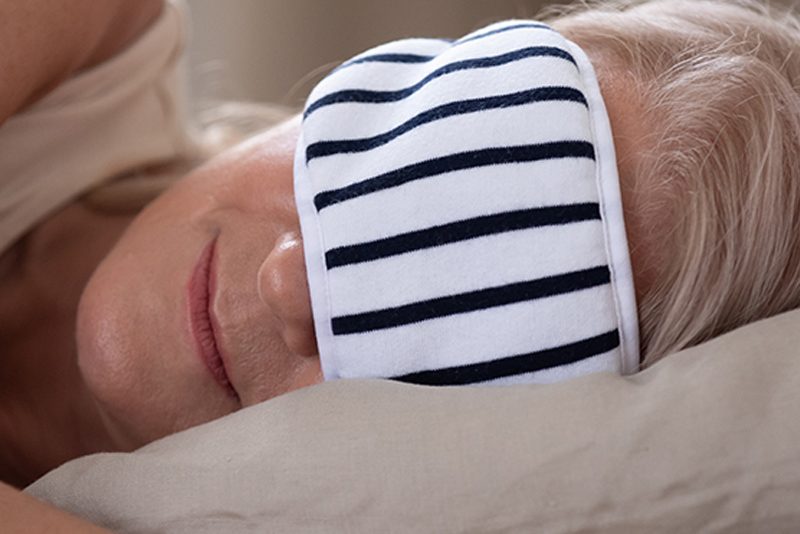
Steps you can take now:
- Exercise regularly. Exercising on a regular basis is said to help us sleep, as, among other things, it can help to reduce anxiety and relieve stress. It is, however, important to exercise at the right time. Exercising earlier in the day is better, as exercise increases the body’s adrenaline production, making it more difficult to sleep if done just before bedtime. Therefore exercise at least three hours before bedtime.
- Mindfulness Yoga and Qigong have been proven to reduce anxiety and depression and can improve sleep. Parkinson’s Care and Support UK provides FREE online Mindfulness Yoga and Qigong Classes. Sign up to these now via the links at the bottom of the page.
- Practicing mindfulness (a type of meditation) can help by reducing stress and anxiety levels. Mindfulness can be practised without a GP prescription.
- Avoid tea and coffee and don’t drink a lot of alcohol before bed. Drinks containing lots of caffeine can keep you awake, so drinking less tea and coffee. Alcohol consumption at night can result in waking up during the night due to wearing off effects, dehydration or the frequent need to urinate.
- Avoid eating chocolate and other sugary foods late in the day might help you to sleep better
- Try to go to sleep and wake up at the same time each day.
- Only use your bed for sleep or sex. Your bed should be associated with sleep.
- Establish a regular, relaxing bedtime routine that lets you unwind and sends a signal to your brain that it’s time to sleep.
- If you can’t sleep, don’t worry about it. Get up and do something relaxing like listening to music or reading until you feel sleepy.
Treating Persistent Insomnia
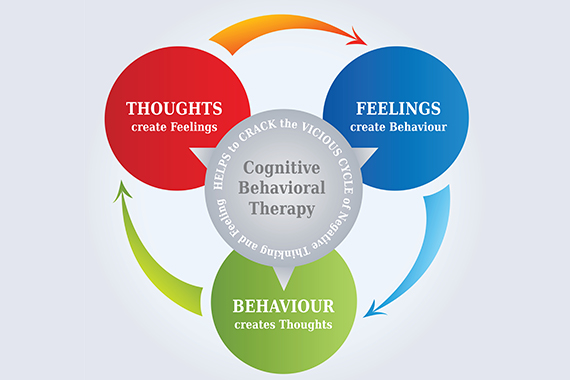
CBT
One of the most widely used and successful therapies is cognitive behavioural therapy (CBT). CBT is the most successful therapy for anxiety and depression and is also great for treating insomnia. It can encourage a more positive attitude, which can then help to break the cycle of negative thoughts causing your lack of sleep, and thus can help you to develop a healthier sleep pattern.
CBT helps people with poor sleep establish a healthy sleep pattern. This behavioural element supports people to develop a ‘pro-sleep’ routine and to achieve strong connection between bed and successful sleep, meaning that falling asleep and staying asleep in bed becomes more automatic and natural.
If you continue to have sleep problems for more than a month, you could speak with your GP about the possibility of using cognitive behavioural therapy (CBT). CBT is used to treat some mental health problems.
Parkinson’s Care and Support UK are developing a CBT Helpline for people with Parkinson’s who are suffering from anxiety and depression. Help to fund our CBT Helpline so that we can provide the mental health support people with Parkinson’s need today.
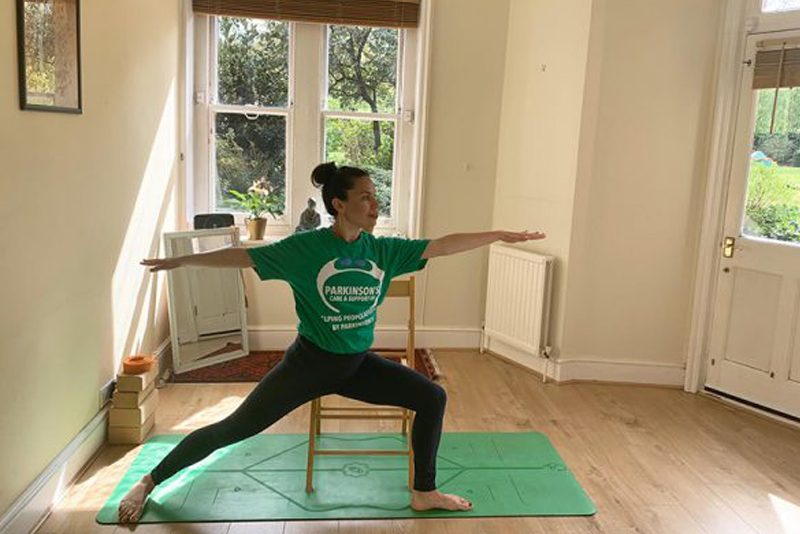
Mindfulness Yoga
Bringing mindfulness to any form of activity brings an alert focus to what is actually happening in the moment and how you respond to it. This mindfulness transforms movement and yoga into a form of meditation. In our mindful yoga class, you will be encouraged to work within your body mind limitations, accepting yourself today with compassion and applying yourself within that framework.
Mindfulness Yoga calms the mind and body. The breathing mechanism brings about relaxation and can help with sleeping disorders associated with Parkinson’s, anxiety and depression and improves wellbeing.
Mindfulness Yoga and Qigong have been proven to reduce anxiety and depression and can improve sleep. Parkinson’s Care and Support UK provides FREE Mindfulness Yoga classes every Tuesday at 4pm for people with Parkinson’s and their partners.

Qigong
Qigong (ch’i kung, chi gong), China’s ancient system of energy medicine, consists of exercises and meditations that stimulate the flow of qi, life energy. Parkinson’s Care and Support UK provides free Qigong classes every Wednesday at 4pm.
Qigong helps to manage the psychological impact of living with Parkinson’s Disease. It also helps you to take back a level of control and to improve your quality of life whilst working with your own comfort zone with self– compassion. This practice can help to slow down the central nervous system, release mental tension, calm the mind, improve sleep and aid the symptoms of anxiety and depression.

Natural Supplements
Parkinson’s Care and Support UK promotes natural health and wellness. Natural supplements have been proven to cure insomnia, especially when used in conjunction with lifestyle and environmental changes. There are many supplements that help with insomnia or to improve sleep. Our recommendations below are backed by scientific research. As always, do lots of research and discuss the introduction of supplements when taking medication.
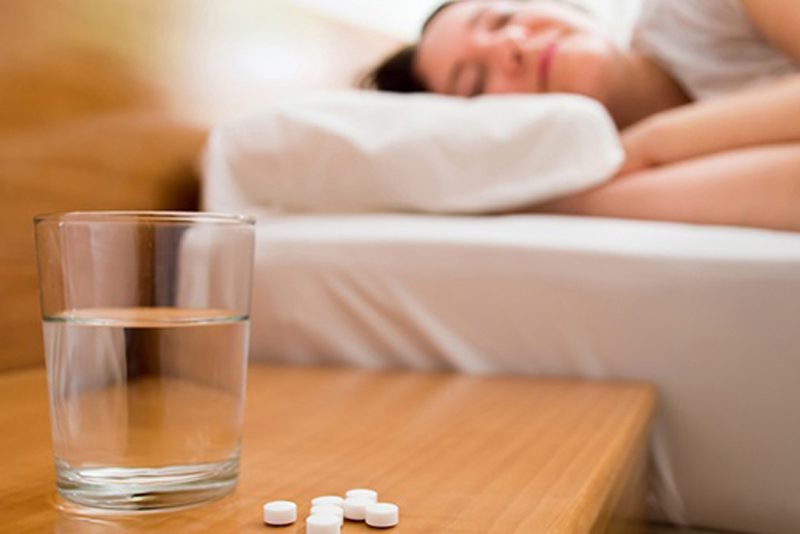
Melatonin
Melatonin is a hormone your body produces naturally, which signals your brain that it’s time to sleep.
Melatonin supplements may improve overall sleep quality in individuals suffering from sleep disorders. Specifically, melatonin appears to reduce the time people need to fall asleep and increase the total amount of sleep time

Valerian Root
Valerian is an herb native to Asia and Europe. Its root is commonly used as a natural treatment for symptoms of anxiety, depression and menopause.
Valerian Root is also one of the most commonly used sleep-promoting herbal supplements in Europe and the US and two recent reviews reported that 300–900 mg of valerian taken right before bedtime may improve self-rated sleep quality for those suffering from insomnia.

Magnesium
Magnesium is an essential dietary mineral involved in hundreds of processes in the human body. It is the second most common electrolyte in the body and is important for brain function. Magnesium deficiencies are common in the western diet, and magnesium deficiencies have been linked to a number of adverse health effects including weakness, cramps, fatigue, anxiety, and high blood pressure.
Studies report that insufficient levels of magnesium in your body may be linked to troubled sleep and insomnia
As a supplements magnesium may help quiet the mind and body, making it easier to fall asleep. It also appears to increase brain levels of gamma-aminobutyric acid (GABA), a brain messenger with calming effects.
Studies show that magnesium’s relaxing effect may be partly due to its ability to regulate the production of melatonin, a hormone that guides your body’s sleep-wake cycle.

Glycine
Glycine is an amino acid that plays an important role in the nervous system. Recent studies show it may also help improve sleep.
In one study, participants suffering from poor sleep consumed 3 grams of glycine or a placebo immediately before bedtime. Those in the glycine group reported feeling less fatigued the next morning. They also said their liveliness, peppiness and clear-headedness were higher the next morning.
Another study revealed that participants who took 3 grams of glycine before bedtime showed improved objective measures of sleep quality compared to the placebo. Glycine supplements also helped participants fall asleep faster.

CBD
Cannabidiol (CBD) is a natural compound found in cannabis plants. These compounds are known as cannabinoids. Cannabis has several hundred of these compounds.
CBD doesn’t have the psychoactive benefits of tetrahydrocannabinol (THC), cannabis’s more famous cannabinoid. It does, however, have other potentially beneficial effects. Research suggests CBD may help reduce anxiety, relieve pain, aid sleep and offer neuroprotective properties.
Sleep disruption and a lack of quality sleep is a serious concern for people with Parkinson’s disease. Vivid dreams or nightmares, as well as movement during sleep, is common. Many people with Parkinson’s use CBD oil to help them with their symptoms, including sleeping. Studies have found that both cannabis and CBD alone might help with sleep disturbances.
Medications
Parkinson’s Care and Support UK does not recommend taking sleeping pills. These are short term solutions and can often make you feel awful and tired the next day. They also often result in dependency, which is the last things you want.
Author of Overcoming insomnia and sleep problems, Professor Colin Espie and leading authority on sleep at the University of Oxford, offers his five top tips for a great night’s sleep.
1. Don’t get caught napping!
If you have trouble sleeping, you may feel tempted to catch up on sleep by taking naps. However, unless you’re feeling dangerously sleepy (while driving or operating machinery, for instance), this usually does more harm than good as it makes it more difficult to sleep at night. If you feel tired during the day, get up and take a walk around, get some fresh air, or do something challenging for a short while, like a crossword or a Sudoku.
2. If you’re not tired, get up.
If you’re finding it difficult to get to sleep, don’t just lie there worrying. Get up for a few minutes and get a drink (no sugar or caffeine, remember!), and go back to bed when you’refeeling a bit sleepier.
3. Set yourself a ‘get fit’ plan.
Eating healthily and getting regular exercise are great ways of helping yourself sleep better. However, plan your meals and exercise to avoid exercising or eating a big meal after mid-evening: doing either of these too close to your bedtime can stop you from sleeping.
4. Don’t stress it!
Thinking about sleep too much or trying to force yourself to sleep will only keep you awake. Learning how to relax both your body and mind instead will help you to get to sleep much more easily. Parkinson’s Care and Support UK offers free weekly Mindfulness Yoga, which can help with insomnia and anxiety.
5. Keep a sleep diary.
The amount of noise, light, and distractions, what and when you eat, and the temperature of your bedroom can affect how well you sleep. Keeping a sleep diary to make a note of what the conditions were when you went to bed the night before can be useful for letting you look back and see what has and what hasn’t worked for you. It also helps you to see how your sleep varies from night to night, and might help you note patterns in your sleeping.

